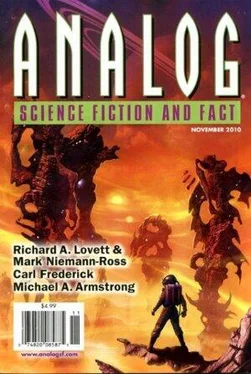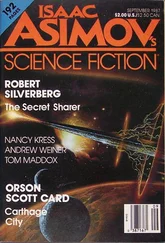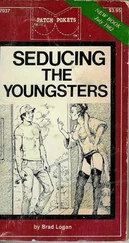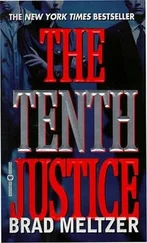Brad Torgersen - Outbound
Здесь есть возможность читать онлайн «Brad Torgersen - Outbound» весь текст электронной книги совершенно бесплатно (целиком полную версию без сокращений). В некоторых случаях можно слушать аудио, скачать через торрент в формате fb2 и присутствует краткое содержание. Год выпуска: 2010, Издательство: Dell Magazines, Жанр: Фантастика и фэнтези, на английском языке. Описание произведения, (предисловие) а так же отзывы посетителей доступны на портале библиотеки ЛибКат.
- Название:Outbound
- Автор:
- Издательство:Dell Magazines
- Жанр:
- Год:2010
- ISBN:нет данных
- Рейтинг книги:5 / 5. Голосов: 1
-
Избранное:Добавить в избранное
- Отзывы:
-
Ваша оценка:
- 100
- 1
- 2
- 3
- 4
- 5
Outbound: краткое содержание, описание и аннотация
Предлагаем к чтению аннотацию, описание, краткое содержание или предисловие (зависит от того, что написал сам автор книги «Outbound»). Если вы не нашли необходимую информацию о книге — напишите в комментариях, мы постараемся отыскать её.
Outbound — читать онлайн бесплатно полную книгу (весь текст) целиком
Ниже представлен текст книги, разбитый по страницам. Система сохранения места последней прочитанной страницы, позволяет с удобством читать онлайн бесплатно книгу «Outbound», без необходимости каждый раз заново искать на чём Вы остановились. Поставьте закладку, и сможете в любой момент перейти на страницу, на которой закончили чтение.
Интервал:
Закладка:
“If you are seeing and hearing this message,” she said, “then you are halfway to us. We know about the war, and we know that you would not have come this far unless you sought refuge. Be aware the Quorum has decided to grant asylum to all refugees from the governments of Earth, the independent satellite localities, and all colonies of the asteroids and the Jovian planets. Provided that you can reach us. We regret that we can offer no further assistance at this time. We also regret that we cannot offer you precise coordinates to follow, but if you have come this far, you already know the rest of the way. Good luck.”
The message repeated, and I was both elated and crushed.
So far. I’d come so far. Tab and Howard had sacrificed so much. And this was only halfway?
I went back to my calculations, regarding stores and the upkeep of the hydroponics. There was no way I’d squeeze out fifteen more years, even if I thought I could last that long alone without going insane as a result. Even if I dumped the entire antimatter reserve into one, long, drawn-out burn, I’d have nothing left to slow myself down with when I neared the endpoint.
I stayed near the buoy, and debated at length.
The girl in the message had obviously intended for refugees to keep following the last known trajectory of Pioneer 10. Following that jellybean trail was a snap. How I could do it and still be alive upon arrival was another matter entirely.
It took me three days of thinking and tinkering to come up with a plan.
It terrified me, because it seemed so much like suicide.
The room with the recording equipment hadn’t been touched in a long, long time. Tab had sealed it in a low-density, pure nitrogen environment after she’d helped put Howard into the computer, so that all the machinery and the consoles remained pristine and in good working order. It was also one of the few rooms the micrometeoroid disaster had not touched, and this gave me a hint of comfort while I set about preparing to download myself into the observatory’s database arrays.
I’d spent a few weeks carefully creating a new, hardened shelter for those arrays, then painstakingly moved each one of them from the old core down to the new location, finally powering them up and synchronizing them, with triple-redundant electricity I’d snaked down from the antimatter reactors.
If the observatory got hit again, I didn’t want to suffer the same lobotomized fate as my old friend.
The instructions for recording were fairly simple. The device itself was like a compact PET scanner that lowered over the skull like a hair dryer.
The catch was that the process could not be aborted or re-tried. The recording process took days, and was so electromagnetically intensive it destroyed neural pathways as quickly as it stored them in the databanks. Once the recorder lowered itself over my skull and began scanning, I was on a one-way trip. And since I didn’t have any help, and had never done anything like it before, there was a very good chance I’d wind up nothing more than a mindless piece of meat, my entire life hopelessly scrambled inside the computer.
I prepared carefully. In the event that I did not survive, I programmed an automatic course into the guidance system. Having come this far, it seemed worth it to make sure my remains had at least a chance of arriving at my destination. I also networked the life support servers and crossed them with the recording monitor, so that if the recording process completed and I did not awake and assume full control over the observatory, the contents of the observatory would be gradually deep-frozen.
My brain would be empty at that point anyway, and I didn’t like the idea of leaving my body to slowly rot on the recording couch.
Once I was satisfied that I’d tended to the necessary details, I sat down and considered my final words. In my entire life, through everything I’d experienced, I’d never really thought about what I’d want to leave behind for the future. It had always been someone else leaving something behind for me. I had always been the one to have to pick up the pieces and carry on. It frustrated me to sit there in front of the computer, finger poised over the button that would begin audio-video storage, and not have a damned thing to say.
After ten minutes I finally tapped the button and spoke—in TransCom, so that the people who might recover the recording would understand.
“My name is Miroslaw Jaworski. I might be the only survivor to have escaped the destruction of planet Earth. If you are viewing this message, it means that I am dead. If it’s not too much trouble, I’d like somebody to put up a placard somewhere, for myself and my family.”
I slowly repeated the full names of my sister, mother, and father, as well as my grandparents, and several extended family who had been alive when the antimatter bombs wiped out the Earth. It seemed like a good idea to include them, since we were all victims and I wanted our lives to be remembered somewhere, by somebody.
“I don’t really care what happens after that. Tabitha and Howard Marshall are entombed on the other side of this facility, and I think they should stay there. My body, and the entire contents of this observatory, are yours to do with as you see fit.
“Out.”
I punched the stop key, made sure the file replicated through my crude daisy chain of stand-alone workstations, then stood up and walked to the recording room, where I slowly shut the door, set up the IV system—I’d need fluid put into me during the process, or I’d dehydrate to death before recording was complete—then sat in the recorder’s attached chair.
The recorder “crown”—which is how I’d come to think of it—was poised just centimeters above my skull. I’d detached the activator toggle from the control station and put it on a cable that allowed me to hold the toggle in my hand.
I thought about how Howard had once had to do this, with only Tab to monitor his progress.
Swallowing hard, I flipped the toggle with my thumb.
And the universe vanished into a swirl of sounds and color.
Nothing could have prepared me for what happened next. One moment I was bathed in an endless sea of shifting and chaotic images—sounds echoing across the cosmos from one side of my mind to the other—and the next moment I seemed to snap back to a state of utterly cold and solid reality.
Only I was seeing the observatory through at least fifty different eyes, and hearing with fifty different ears, and I couldn’t blink or turn off the input. So I was trying to scream, but that just made things worse because my scream bellowed from fifty different speakers, which overloaded fifty different microphones. Within my head a feedback squeal like a migraine peeled across my consciousness.
It was Howard who saved me. Or, rather, his memories.
On the chance that I’d be able to access what was left of Howard’s intellect, I’d networked his old arrays in a cluster adjacent to the main set of blanks I’d set up for myself. In desperate panic, I mentally reached for Howard, and felt a quick jolt of information flow across the link. Suddenly I was on solid mental ground again, my field of vision rapidly narrowed to one camera view, and my ability to hear narrowed down to a single, neutered computer voice that simply said, “Command access granted, Mirek. Awaiting further instructions.”
The system knew my name.
I’d made it.
Only, I couldn’t feel excited about that. Intellectually, I think I was relieved. But the glandular feeling of satisfaction, of triumph, that should have been mine, was absent. All that remained was the coolness of pure, rapid thought. Thought so fast, I felt staggered by the implications. And capability. No mathematical calculation ever need be beyond my grasp again. The moment I could conceive of a problem, the answer was in my mind at the same instant. Memory recall proved similarly rapid, and I took a few moments to ponder this reality, which brought on a further jolt of data from Howard’s banks, which were actively integrating with my own, now that they had a reliable cerebral matrix to map to.
Читать дальшеИнтервал:
Закладка:
Похожие книги на «Outbound»
Представляем Вашему вниманию похожие книги на «Outbound» списком для выбора. Мы отобрали схожую по названию и смыслу литературу в надежде предоставить читателям больше вариантов отыскать новые, интересные, ещё непрочитанные произведения.
Обсуждение, отзывы о книге «Outbound» и просто собственные мнения читателей. Оставьте ваши комментарии, напишите, что Вы думаете о произведении, его смысле или главных героях. Укажите что конкретно понравилось, а что нет, и почему Вы так считаете.












